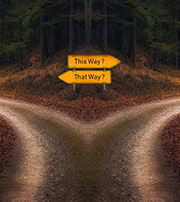
Over the last year I’ve been hosing a series of public conversations with, at least in my view, some of the most inspiring leaders in civil society.
I don’t like to pick favourites, but the most recent one with Sarah Hughes and Danny Sriskandarajah has got to be right up there.
After the edit and again after the upload, I clicked play to check it worked OK. And both times I found myself sitting there watching the whole thing.
We covered a myriad topics as the hour flew by (see for yourself if you like) but perhaps the biggest topic was one I’d not expected to emerge at all.
I asked Sarah and Danny what they thought was the most consequential challenge facing civil society. Naively, I suppose I thought Sarah would probably talk about the mental health epidemic and Danny about soaring economic inequity.
But actually, from two different angles, they both talked about the exact same thing: the growth of authoritarianism and the erosion of civil freedoms.
And both were wonderfully eloquent in drawing a direct line from populism, social fragmentation, and the concentration of power, to both of their organisations’ missions, and to many more right across civil society.
Neither they, nor I, thought it hyperbola to call this dramatic and ongoing shift in the Overton Window an existential threat. The question is, what are we going to do in response?
I don’t think we have an answer.
More than that, I think we’re avoiding the question.
The CEO group discussion I hosted on this very topic a couple of weeks ago, was one of the least attended I’ve ever run, and one of the observations from that small group was that in general, leaders simply aren’t talking with each other about this.
Even though it’s already bubbling up through many of our organisations. Lots of CEOs being asked by their own people: What are we going to do? Are we going to talk to Reform? What are we going to say? What’s our position on x, y and z?
And no doubt some leaders will already have made some of these decisions, but on what basis?
For some, it will have been mostly about organisational values or historic commitments. For others, the dominant views of their teams or trustees; perhaps even their own personal ideology. And for some it may have been a balance of all those alongside research on the profiles of donors or members, or the longer-term scenarios of options A and B on their wider beneficiary groups.
And there will also be no shortage of leaders still avoiding the questions, but to quote Sarah, “It’s getting harder and harder to pretend that they don’t exist.”
Plus, of course, in the immortal words of Rush: if you choose not to decide you still have made a choice.
There’s a decision framework I use with clients when a topic gets tricky, often in strategy, culture, ethics and so forth, which has four steps.
Narrow down to the specific decision you need to make. Decide on what basis you should make it – what factors you should consider. Work out what insight or evidence could objectively inform those considerations. And then nail down when the decision will be made and by whom.
Sounds obvious, I know, but when a topic contains a lot of emotional baggage, if you ask people how you should decide, invariably, they will tell you what you should decide. It’s as inevitable as death and taxes.
How we make decisions, particularly the most contentious ones, is often more important than the decision itself.
On this topic, across civil society, different organisations will come to different conclusions. Some will engage, some will call out, some will confront.
And that’s good thing. It gives us more angles, more levers, more scope and agility as a collective community.
But only if we’re clear about our own position and rationale, share it with each other, and accept that you may have different considerations to me and that’s OK – we can, and will, still coordinate and work together.
Because the bigger threat, is if the polarising culture that’s fragmenting society, starts fragmenting civil society as well – if we start to see each other as collaborators versus militants rather than as colleagues.
If that happens, we’ve already lost.
So, my plea to you, dear reader, is this. Think about how your organisation is making these decisions and be proactive, open and transparent with your peers.
But above all, please, seek to understand how others have made their choices before you critique them.
